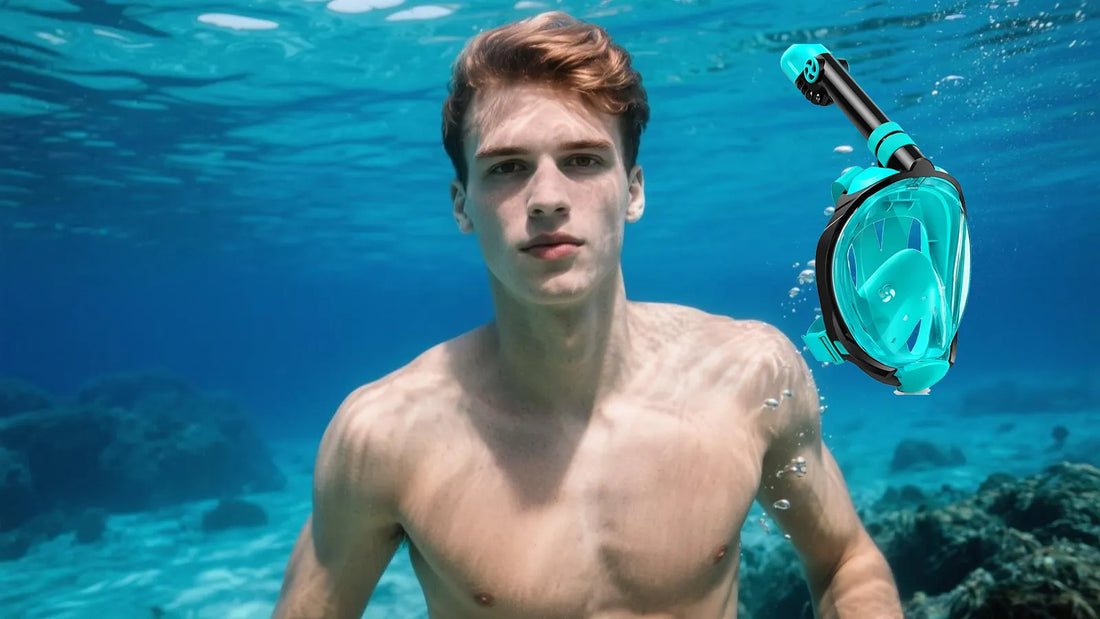Have you ever wondered if you need to be a strong swimmer to enjoy the wonders of snorkeling? The answer might surprise you. Snorkeling is often seen as a gateway to exploring the underwater world, but many people hesitate to try it because they’re unsure about their swimming abilities. Let’s dive into the details and uncover whether swimming is a must for snorkeling, what skills you need, and how you can safely enjoy this activity even if you’re not a confident swimmer.
What Is Snorkeling?
Snorkeling is an activity that allows you to observe underwater life while staying close to the surface. It involves using a snorkel, a mask, and often fins to glide through the water. Unlike scuba diving, which requires extensive training and equipment, snorkeling is relatively simple and accessible. It’s a popular activity in tropical destinations, where vibrant coral reefs and marine life are just a short swim away from the shore.
Does Snorkeling Require Swimming?
The short answer is: it depends. While swimming skills can enhance your snorkeling experience, they are not always a strict requirement. Here’s why:
- Shallow Water Snorkeling: In shallow areas, you can often stand or walk on the seabed, making swimming unnecessary. This is ideal for beginners or those who are less confident in the water.
- Use of Flotation Devices: Life jackets, snorkel vests, or floatation belts can provide extra buoyancy, allowing you to stay afloat without much effort. These tools are especially helpful for non-swimmers.
- Calm Waters: Choosing locations with calm, clear waters reduces the need for strong swimming skills. Gentle currents and good visibility make snorkeling more manageable.
However, if you plan to snorkel in deeper waters or areas with stronger currents, basic swimming skills are highly recommended. Being able to swim ensures you can navigate safely and handle unexpected situations.
Essential Skills for Snorkeling
While swimming isn’t always required, there are a few key skills that can make your snorkeling experience more enjoyable and safe:
- Breathing Through a Snorkel: Practice breathing through the snorkel while keeping your face in the water. This helps you get comfortable with the equipment.
- Floating: Learning to float on your stomach or back can conserve energy and make snorkeling less tiring.
- Kicking with Fins: Fins help you move efficiently through the water. Practice using them to improve your mobility.
- Clearing Your Snorkel: If water enters your snorkel, knowing how to clear it quickly is essential. This involves exhaling forcefully to push the water out.
Tips for Non-Swimmers
If you’re not a strong swimmer, don’t let that stop you from snorkeling. Here are some tips to help you get started:
- Choose the Right Location: Opt for shallow, calm waters with minimal currents. Many popular snorkeling spots cater to beginners.
- Use Flotation Devices: Wear a life jacket or snorkel vest to stay buoyant and feel more secure.
- Take a Guided Tour: Joining a guided snorkeling tour ensures you have an experienced leader who can assist you and ensure your safety.
- Practice in a Pool: Before heading to the ocean, practice using your snorkel and fins in a pool to build confidence.
Safety Precautions for Snorkeling
Whether you’re a swimmer or not, safety should always be a priority when snorkeling. Here are some important precautions to keep in mind:
- Never Snorkel Alone: Always snorkel with a buddy or in a group. This ensures someone can assist you in case of an emergency.
- Check Weather Conditions: Avoid snorkeling in rough seas or strong currents. Calm, clear waters are ideal.
- Stay Hydrated: Spending time in the sun and saltwater can dehydrate you. Drink plenty of water before and after snorkeling.
- Respect Marine Life: Avoid touching or disturbing coral reefs and marine animals. This protects the ecosystem and ensures your safety.
Benefits of Snorkeling
Snorkeling offers numerous benefits, making it a worthwhile activity for people of all ages and skill levels:
- Exploration: Snorkeling allows you to discover the beauty of underwater ecosystems, from colorful fish to intricate coral formations.
- Exercise: It’s a low-impact workout that improves cardiovascular health, strengthens muscles, and enhances flexibility.
- Relaxation: Floating in the water and observing marine life can be incredibly calming and stress-relieving.
- Accessibility: Compared to other water activities, snorkeling requires minimal equipment and training, making it easy to try.
Common Misconceptions About Snorkeling
There are several myths about snorkeling that can deter people from trying it. Let’s debunk some of the most common ones:
- You Need to Be a Strong Swimmer: As we’ve discussed, swimming skills are helpful but not always necessary. Flotation devices and shallow waters make snorkeling accessible to non-swimmers.
- Snorkeling Is Only for Tropical Destinations: While tropical locations are popular, you can snorkel in lakes, rivers, and temperate oceans too.
- It’s Expensive: Snorkeling requires minimal equipment, and many destinations offer affordable rentals or tours.
- It’s Dangerous: With proper precautions and the right conditions, snorkeling is a safe and enjoyable activity.
How to Get Started with Snorkeling
Ready to give snorkeling a try? Here’s a step-by-step guide to help you get started:
- Choose the Right Gear: Invest in a well-fitting mask, snorkel, and fins. If you’re not a strong swimmer, consider a flotation device.
- Practice in a Controlled Environment: Use a pool or shallow water to get comfortable with your equipment.
- Plan Your First Snorkeling Trip: Select a beginner-friendly location with calm waters and good visibility.
- Join a Guided Tour: A professional guide can provide valuable tips and ensure your safety.
- Enjoy the Experience: Take your time, relax, and immerse yourself in the underwater world.
Snorkeling is a fantastic way to connect with nature and explore the ocean’s wonders. Whether you’re a seasoned swimmer or a complete beginner, there’s a way for you to enjoy this activity safely and confidently. So, grab your gear, find a beautiful spot, and dive into the adventure of snorkeling!

